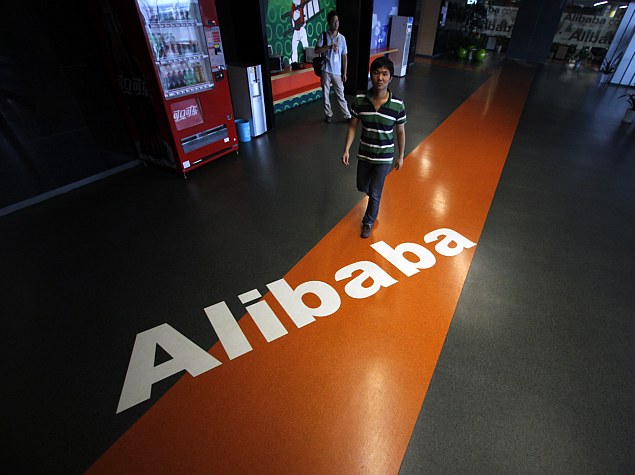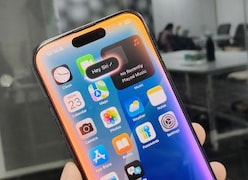- Home
- Internet
- Internet News
- China's Alibaba Expected to Make Bigger US IPO Debut Than Facebook
China's Alibaba Expected to Make Bigger US IPO Debut Than Facebook

Alibaba gave investors a closer look at the scale and growth of the Chinese e-commerce juggernaut in an initial public offering prospectus filed on Tuesday, the first step in what could be the largest technology debut in history.
Alibaba Group Holding Ltd, which powers 80 percent of all online commerce conducted in the world's second-largest economy, is expected to raise more than $15 billion, potentially surpassing the $16 billion that Facebook Inc raised when it went public in 2012.
While the Alibaba brand name is hardly as well known among U.S. consumers as Internet companies Amazon.com or Facebook, the Chinese company's IPO has stirred the most excitement in Silicon Valley and Wall Street since Facebook's record-breaking IPO.
It will become the largest Chinese corporation to have sought a home on U.S. exchanges.
Alibaba will debut in a market where high-flying stocks like Twitter and Amazon have in past weeks been brought back to earth, in a selloff that has divided Wall Street while reviving doubts about soaring tech valuations.
Still, estimates of Alibaba's market value have soared in recent months, to even beyond $200 billion. That underscores Wall Street's eagerness to take a crack at a massive Chinese company that is growing vigorously.
Alibaba handled more than 1.5 trillion yuan, or about $248 billion, of transactions for 231 million active users across its three main Chinese online marketplaces in 2013, more than Amazon Inc and eBay Inc combined. That is with 20,884 full-time workers, fewer than eBay.
"If it is able to transport that kind of power to outside China, it has the potential to become a true global ecommerce powerhouse," said Roger Entner, lead analyst and founder of Recon Analytics.
"Everybody thought Amazon could do it but now we have to rethink Amazon in the light of being the most successful company in that field in the U.S. - but not in the world."
Alibaba did not provide any hints in its prospectus about potential plans for the U.S. e-commerce market. Analysts said it was unlikely that Alibaba would adopt the model favored by Amazon, which sells goods directly to consumers using a sprawling network of warehouses.
At least 102 years
Alibaba, founded 15 years ago in a Hangzhou apartment and controlled by a 28-member partnership, boasts of building a company that will last "at least 102 years."
After the IPO, Alibaba said, the partnership will have the exclusive right to nominate a simple majority of the members of its board of directors.
Alibaba operates an online messaging service as well as a cloud computing business, but more than 80 percent of its revenue comes from its three main online marketplaces: Taobao, Tmall and Juhuasuan.
Top items sold on Taobao include prepaid phone and game cards as well as lottery tickets, home furniture and baby products, the company said.
Some analysts point out that Alibaba's rapid pace of revenue growth may be unsustainable.
"They got into the e-commerce space when there weren't any other players in China," said Forrester analyst Kelland Willis, adding that Alibaba has been "losing market share year over year."
By 2020, online retail sales in China will reach between $420 billion and $650 billion, as much as the United States, Japanese, UK, German and French markets combined, according to a recent analysis by McKinsey Global Institute.
Alibaba said the Chinese mobile Internet arena, where it is battling Tencent Holdings for supremacy, is the next growth industry.
Roughly one-fifth of all purchases in the last three months of 2013 were made on a mobile device, up from 7.4 percent a year earlier. But Alibaba added that for now these sales were less profitable than those made on its website.
Some analysts have pointed to a less-than-transparent decision-making process after Alibaba spinned off fast-growing Alipay in 2010. That move came as a surprise to major shareholders Yahoo Inc and Softbank Corp
Alibaba's prospectus also laid out a raft of regulatory risks it faces at home. The company stressed that the government could impose additional restrictions on the use of Alipay, the payment service that powers the majority of its online transactions.
Who owns what?
Unlike many prominent U.S. technology IPOs of recent years, Alibaba's list of significant shareholders is short. By contrast, Facebook and Twitter each broke out shareholdings from more than a half dozen individual principal shareholders.
Former English schoolteacher and co-founder Jack Ma owns 8.9 percent of Alibaba. Yahoo and Softbank, respectively, own 22.6 percent and 34.4 percent of the company on a fully diluted basis.
The $1 billion proposed IPO size in Tuesday's filing is an estimate for the purpose of calculating exchange registration fees. Alibaba said on Tuesday it is still deciding whether to list on the New York Stock Exchange or Nasdaq.
Alibaba estimated that its fair per-share value could reach $50.
This was calculated to determine employee compensation and does not represent the per-share price Alibaba could offer in an IPO.
At that price, Yahoo's stake in the company is worth $26.2 billion while Softbank's holding is worth almost $40 billion.
Yahoo and Softbank may be among the biggest beneficiaries of Alibaba's IPO, but neither will exercise much control of the Chinese company despite their shareholdings.
Yahoo must sell roughly 40 percent of its Alibaba stake in the IPO, or sell the shares back to Alibaba directly prior to the IPO, further diluting its holding.
And under an agreement struck with those two major shareholders, Yahoo Chief Development Officer Jacqueline Reses will resign from the board upon Alibaba's listing, while Softbank will have the right to nominate just one director to a new, nine-member board.
Credit Suisse, Deutsche Bank, Goldman Sachs, JP Morgan, Morgan Stanley and Citigroup will underwrite the IPO.
© Thomson Reuters 2014
Get your daily dose of tech news, reviews, and insights, in under 80 characters on Gadgets 360 Turbo. Connect with fellow tech lovers on our Forum. Follow us on X, Facebook, WhatsApp, Threads and Google News for instant updates. Catch all the action on our YouTube channel.
Related Stories
- Samsung Galaxy Unpacked 2026
- iPhone 17 Pro Max
- ChatGPT
- iOS 26
- Laptop Under 50000
- Smartwatch Under 10000
- Apple Vision Pro
- Oneplus 12
- OnePlus Nord CE 3 Lite 5G
- iPhone 13
- Xiaomi 14 Pro
- Oppo Find N3
- Tecno Spark Go (2023)
- Realme V30
- Best Phones Under 25000
- Samsung Galaxy S24 Series
- Cryptocurrency
- iQoo 12
- Samsung Galaxy S24 Ultra
- Giottus
- Samsung Galaxy Z Flip 5
- Apple 'Scary Fast'
- Housefull 5
- GoPro Hero 12 Black Review
- Invincible Season 2
- JioGlass
- HD Ready TV
- Latest Mobile Phones
- Compare Phones
- Tecno Pova Curve 2 5G
- Lava Yuva Star 3
- Honor X6d
- OPPO K14x 5G
- Samsung Galaxy F70e 5G
- iQOO 15 Ultra
- OPPO A6v 5G
- OPPO A6i+ 5G
- Asus Vivobook 16 (M1605NAQ)
- Asus Vivobook 15 (2026)
- Brave Ark 2-in-1
- Black Shark Gaming Tablet
- boAt Chrome Iris
- HMD Watch P1
- Haier H5E Series
- Acerpure Nitro Z Series 100-inch QLED TV
- Asus ROG Ally
- Nintendo Switch Lite
- Haier 1.6 Ton 5 Star Inverter Split AC (HSU19G-MZAID5BN-INV)
- Haier 1.6 Ton 5 Star Inverter Split AC (HSU19G-MZAIM5BN-INV)







![[Partner Content] OPPO Reno15 Series: AI Portrait Camera, Popout and First Compact Reno](https://www.gadgets360.com/static/mobile/images/spacer.png)









